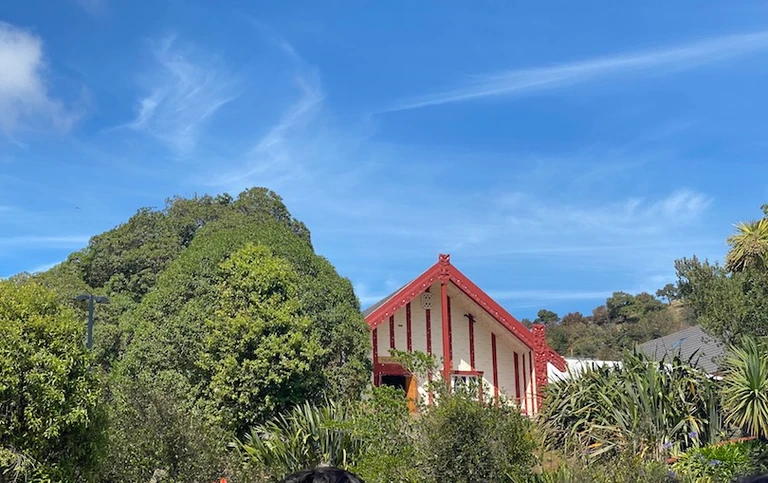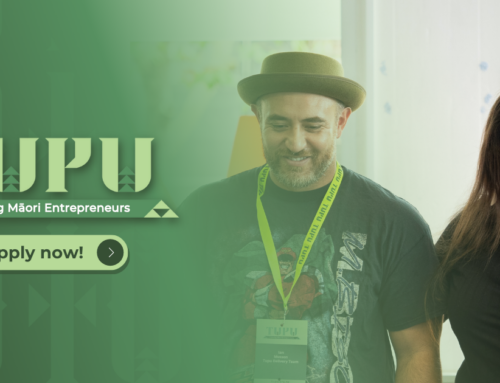Māori women’s and land rights activist Eva Rickard once said: “Somewhere in my past is my destiny”. Now, as tikanga Māori guides us towards a strong, uniquely “New Zealand” future, this decades-old whakatauāki still rings true. With the Māori economy moving from strength to strength, tikanga and mātauranga Māori are beginning to find their way into boardrooms that historically have not held space for them and more organisations are now realising the benefits of a tikanga Māori approach to governance.
Executive director of Te Pūtea Whakatupu, Te Pūoho Kātene (Ngāti Toa Rangatira, Ngāti Whātua, Ngāti Tama) says the term “Māori governance” refers to those who are entrusted with the leadership of organisations that carry a mandate on behalf of their Māori trust, organisation, authority, iwi or hapū. The term also includes Māori governors applying their leadership lens around non-Māori board tables.

“Before colonisation, tikanga was the supreme system of governance in Aotearoa. Māori had a sense of identity and connection with our culture and we operated autonomously in kinship groups. If leaders were challenged, problems were often solved transparently, with input from the collective,” says Kātene.
But tikanga quickly took a back seat as the British instilled their own governance systems in Aotearoa. Before long, the majority of Māori had been urbanised, many of whom were disconnected from their lands, culture and language in the process, and forced to participate in this new Westminster system of governance.
Māori women’s and land rights activist Eva Rickard once said: “Somewhere in my past is my destiny”. Now, as tikanga Māori guides us towards a strong, uniquely “New Zealand” future, this decades-old whakatauāki still rings true. With the Māori economy moving from strength to strength, tikanga and mātauranga Māori are beginning to find their way into boardrooms that historically have not held space for them and more organisations are now realising the benefits of a tikanga Māori approach to governance.
Executive director of Te Pūtea Whakatupu, Te Pūoho Kātene (Ngāti Toa Rangatira, Ngāti Whātua, Ngāti Tama) says the term “Māori governance” refers to those who are entrusted with the leadership of organisations that carry a mandate on behalf of their Māori trust, organisation, authority, iwi or hapū. The term also includes Māori governors applying their leadership lens around non-Māori board tables.
“Before colonisation, tikanga was the supreme system of governance in Aotearoa. Māori had a sense of identity and connection with our culture and we operated autonomously in kinship groups. If leaders were challenged, problems were often solved transparently, with input from the collective,” says Kātene.
But tikanga quickly took a back seat as the British instilled their own governance systems in Aotearoa. Before long, the majority of Māori had been urbanised, many of whom were disconnected from their lands, culture and language in the process, and forced to participate in this new Westminster system of governance.
Since the establishment of the Waitangi Tribunal in 1975, a number of Māori organisations have taken control of assets as part of the compensation and redress process. Now, the Māori economy is estimated to be valued at around $68bn, and is composed of a mixture of Māori authorities such as whānau trusts, hapū and iwi organisations, as well as Māori self-employed and SMEs.
Māori authorities are also growing at a faster rate than New Zealand businesses overall. The number of people employed by Māori authorities increased 25% over the last five years, compared with a 13% increase for all New Zealand businesses. This growth is a signpost of the huge growth of the Māori economy over the last decade with many pointing to the strength of tikanga as a causal factor. But it’s important that Māori governance and leadership extends beyond these specific Māori spaces and Kātene is eager to see more organisations able to confidently straddle both te ao Pākehā and te ao Māori.
“We are seeing the emergence of organisations that are as comfortable on the marae ātea as on Wall Street, because that’s completely possible in our realms of being. And it’s when the rest of the country sees us doing that – autonomous in our rangatiratanga – that they may see Māori leadership not as a matter of obligation or division, but one of opportunity and authenticity,” Kātene says.
Wākatu Incorporation board member, Jeremy Banks (Ngāti Rārua, Rangitāne, and Ngāti Kuia) also believes the benefits of a tikanga approach to governance can scale a business economically in addition to practising cultural competency.
“I do feel like we’re starting to realise that collectively, the way that Māori do stuff is a competitive advantage that can be used in a commercial sense as well. Tikanga doesn’t have to be separated from making money.”






